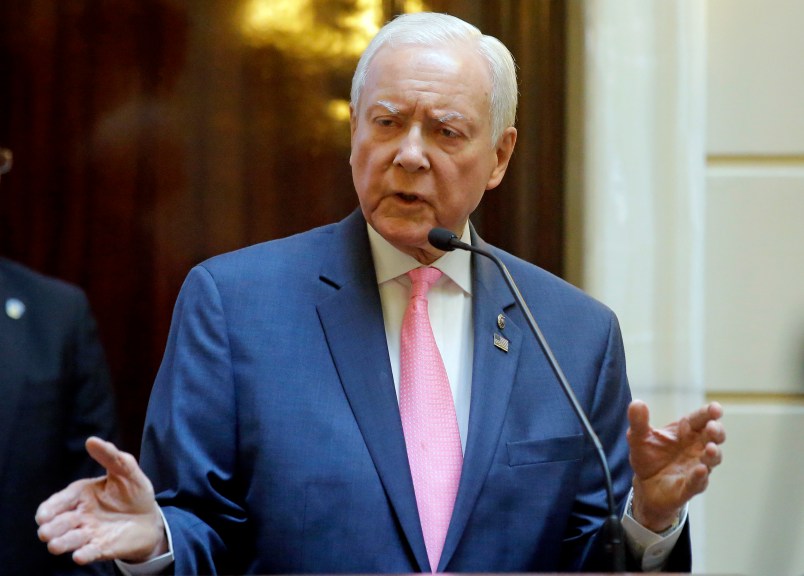Two months ago, amid a stalemate over how to fund health coverage for 9 million children and l0w-income pregnant women, Congress allowed funding for the Children’s Health Insurance Program (CHIP) to lapse. As the end of the year approaches, states are starting to panic. A few have already begun sending out notices to families informing them that their children’s insurance may not be available next year. Several have requested, and received, millions in stopgap emergency funding from the federal government—though that too will run out some time early next year. Some have dipped into their own reserves to make sure no child is thrown out of the program.
Now, after passing a tax bill in the wee hours of Saturday morning that economists say will blow at least a $1 trillion hole in the federal deficit, Congress still has no plan on the table to restore funding for CHIP—which would cost the government about 1 percent of what they plan pay for tax cuts.
While the short-term continuing resolution up for a vote this week includes some emergency shortfall funding for states on the cusp of exhausting their CHIP reserves, a deal on a five-year reauthorization is nowhere to be seen.
During the debate on the tax bill Thursday night, Democrats lambasted Republicans for prioritizing the tax overhaul over children’s health insurance, and demanding offsets to pay for the latter but not the former. In response, Sen. Orrin Hatch (R-UT), one of the original authors of CHIP in 1997, vowed that Congress will reauthorize the program, but blamed the shortfall in its funding not on congressional dithering or expensive corporate tax cuts, but on other social safety net programs.
“We’re going to do CHIP. There’s no question about it in my mind,” he said. “But we, the reason CHIP’s having trouble is because we don’t have money anymore. We just add more and more spending and more and more spending. I happen to think CHIP has done a terrific job for people who really need the help. I believe in helping those who cannot help themselves, but would if they could. But I have a rough time wanting to spend billions and trillions of dollars to help people who won’t help themselves, who won’t lift a finger and expect the federal government to do everything.”
Though Republican leaders have promised that Congress will vote to waive its own rules and avoid deep automatic cuts to Medicare and other federal programs that would otherwise have been trigger by the tax bill’s largesse, Hatch’s remarks and those of other lawmakers signal a strong desire in the GOP to go after the social safety net in the months to come.
The House version of the CHIP bill that passed in early November, for example, pays for CHIP by cutting $5 billion in funding from Obamacare’s prevention and public health fund. In a recent stump speech in Missouri, President Trump vowed to tackle “welfare reform” in 2018. And several Republicans in Congress have suggested that cuts to Social Security and Medicare are on the horizon.







But I have a rough time wanting to spend billions and trillions of dollars to help people who won’t help themselves, who won’t lift a finger and expect the federal government to do everything.”
Do you mean all the millionaires and billionaires who expect the federal government to make them even richer with an obscene tax plan? Those people?
Hey Orrin, go fuck yourself, you festering pile of GOP values.
“Excuse me while I eviscerate our revenue stream…Now, as I was saying, we just don’t have the money…”
83 years old…your party about to go down the tubes permanently…might be a good time to retire, Orrin…
It’s a feature, not a bug. Those children should have chosen more affluent parents before being born…duh
This one is easy – Susan Sarandon and the rest of the Bernie-or-bust dead-enders will be nursing the poor children on the sweet nectar of their progressive purity. Huzzah!